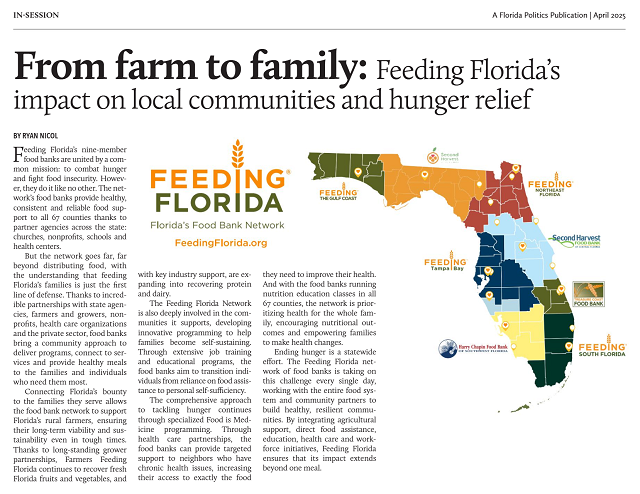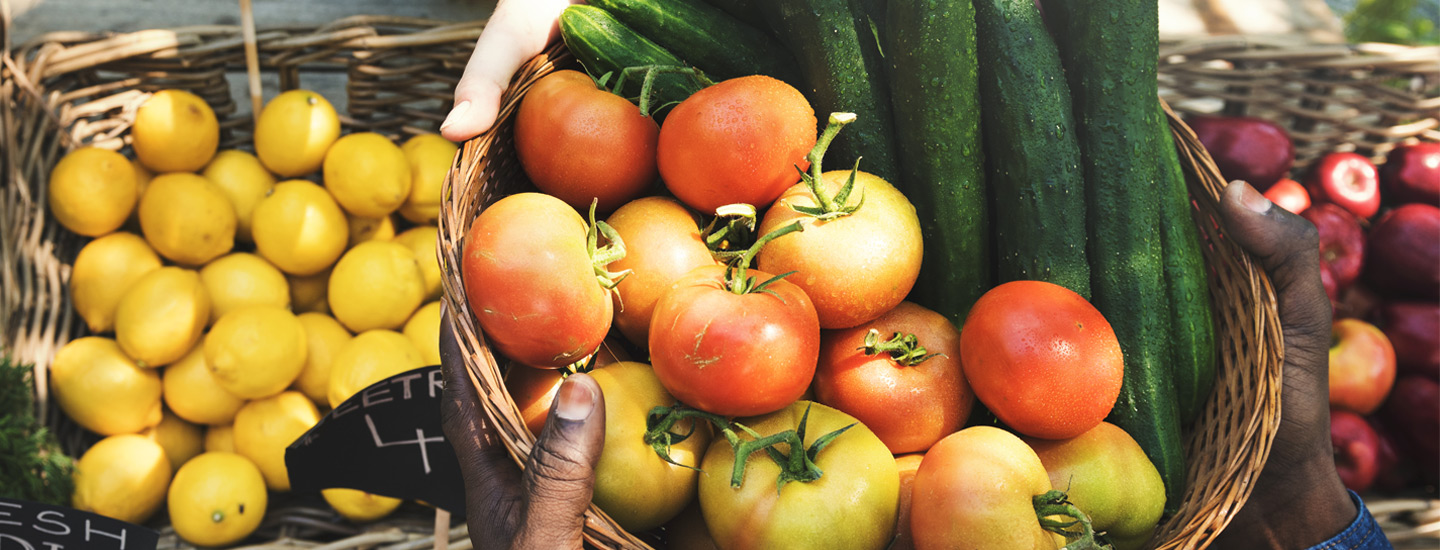By Ryan Nicol
Feeding Florida’s nine-member food banks are united by a common mission- to combat hunger and fight food insecurity. However, they do it like no other. The Network's food banks provide healthy, consistent, and reliable food support to all 67 counties thanks to our partner agencies across the state- churches, non-profits, schools, and health centers.
But the network goes far – far – beyond distributing food because we know that feeding Florida’s families is just the first line of defense. Thanks to incredible partnerships with state agencies, farmers and growers, non-profits, health care organizations, and the private sector, our food banks bring a community approach to deliver programs, connect to services, and provide healthy meals to the families and individuals who need it most.
Connecting Florida’s bounty to the families they serve allows our food bank network to support Florida’s rural farmers, ensuring their long-term viability and sustainability even in tough times. Thanks to our long-standing grower partnerships, Farmers Feeding Florida continues to recover fresh, Florida fruits and vegetables, and with key industry support, are expanding into recovering protein and dairy.
The Feeding Florida Network is also deeply involved in the communities they support, developing innovative programming to help families become self-sustaining. Through extensive job training and educational programs, the food banks aim to transition individuals from reliance on food assistance to personal self-sufficiency.
The comprehensive approach to tackling hunger continues through specialized Food is Medicine programming. Through health care partnerships, the food banks can provide targeted support to neighbors who have chronic health issues, increasing their access to exactly the healthy food they need to improve their health. And with the food banks running nutrition education classes in all 67 counties, the Network is prioritizing health for the whole family, encouraging nutritional outcomes and empowering families to make health changes.
Ending hunger is a state-wide effort. The Feeding Florida network of food banks is taking on this challenge every single day, working with the entire food system and community partners to build healthy, resilient communities. By integrating agricultural support, direct food assistance, education, health care, and workforce initiatives, Feeding Florida ensures that its impact extends beyond one meal.
Originally published in In Session, a publication by Florida Politics, on page 4.


